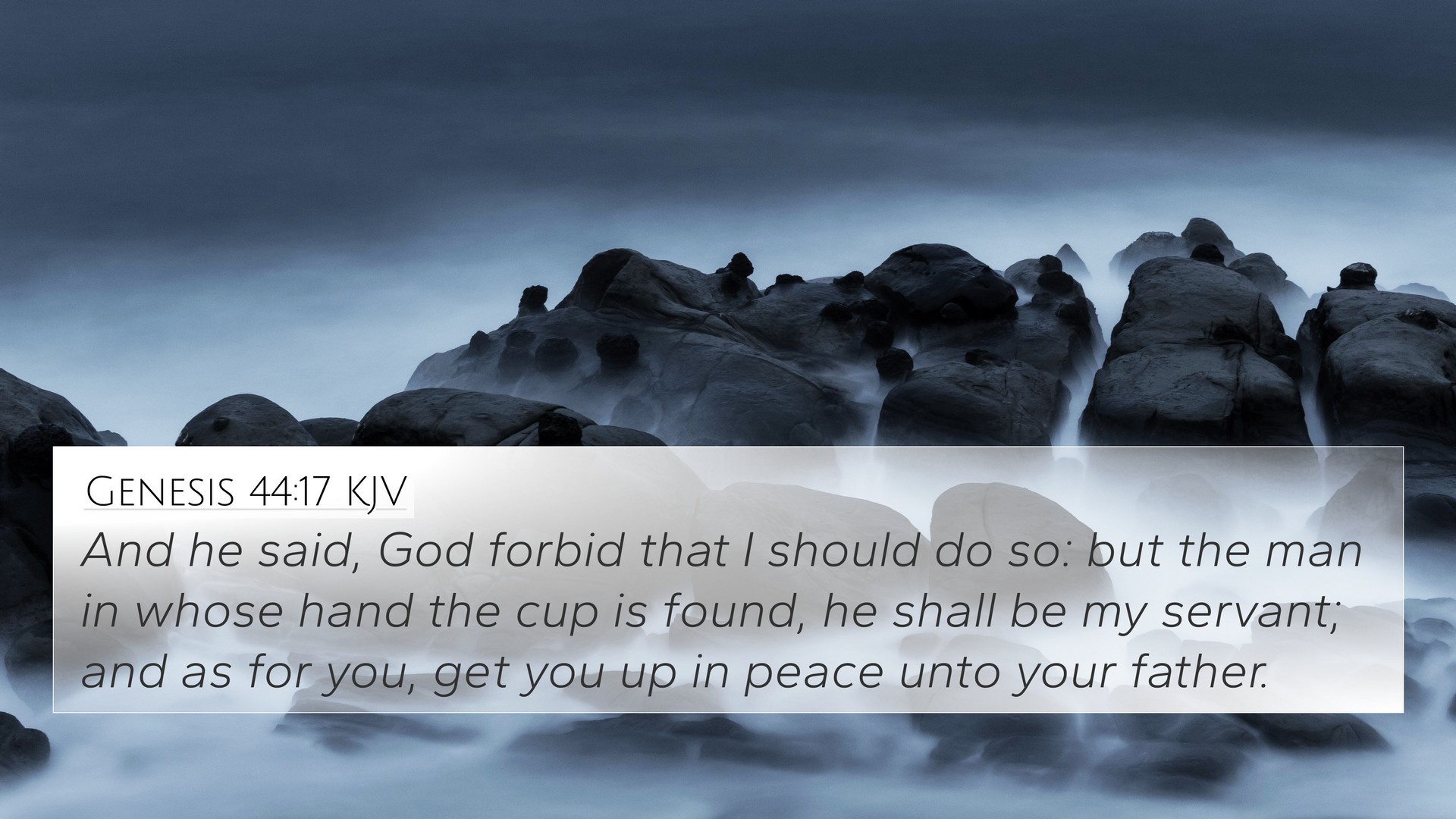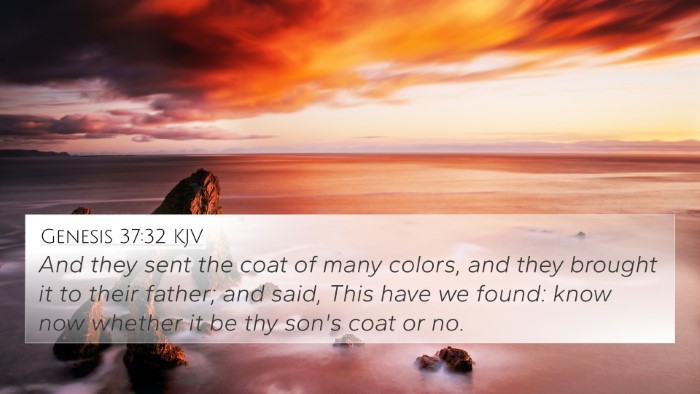Understanding Genesis 44:17
Genesis 44:17 states: "And he said, God forbid that I should do so; but the man in whose hand the cup is found, he shall be my servant; and as for you, get you up in peace unto your father."
Summary of the Verse
This verse occurs in the context of Joseph's testing of his brothers after they have returned to Egypt. He declares that the one who is found with his silver cup will be his servant, while the others can return home in peace. This verse underlines themes of justice, mercy, and repentance.
Detailed Analysis
Matthew Henry's Commentary
Matthew Henry emphasizes the moral aspect of Joseph's statement. He considers it a demonstration of dignity and integrity in administration, as Joseph refrains from enacting a savage punishment on his brothers. Instead, he shows a willingness to extend mercy, indicating that God's providence is at work in shaping human destinies.
Albert Barnes' Notes
Albert Barnes highlights the significance of the cup, suggesting that it symbolizes Joseph's authority and divine Providence. Barnes notes the irony that while Joseph's brothers initially sought to harm him, their eventual role becomes one of humility and realization of their previous wrongs. This incident serves as a poignant reflection of justice—the guilty are confronted, yet mercy is also extended.
Adam Clarke's Interpretation
Adam Clarke takes a more historical and symbolic approach. He posits that the chalice represents the power of divination, reflecting the customs of the time. Clarke argues that Joseph’s demand for the cup reveals the inner transformation of his brothers, who must now reckon with their past sins and guilt. It highlights their journey towards redemption and reconciliation within their familial ties.
Thematic Connections
Genesis 44:17 connects with several biblical themes including:
- Forgiveness - The readiness to forgive mirrors God's forgiveness towards humanity.
- Divine Providence - The verse suggests that events in life are orchestrated for divine ends.
- Redemption - The path to redemption is a key biblical theme, seen in Joseph's brothers’ journey.
- Family Restoration - Focused on reconciliation, it shows the potential for restoring familial relationships.
Cross-References
This verse can be cross-referenced with the following:
- Genesis 37:28 - The sale of Joseph highlights the brothers’ initial deceit.
- Genesis 42:21 - The brothers’ guilt after dealing with Joseph plants the seeds for their repentance.
- Genesis 43:9 - Judah’s willingness to take the blame speaks to his development as a leader.
- Genesis 45:14-15 - The eventual reconciliation is a fulfillment of providential design.
- Exodus 14:13-14 - Echoes the themes of mercy and deliverance in troubling times.
- Psalms 130:4 - Demonstrates God’s character in extending mercy to the repentant.
- Luke 15:20 - The parable of the Lost Son reflects themes of forgiveness and returning home.
Comparative Analysis
When performing a comparative Bible verse analysis, Genesis 44:17 serves as a microcosm of larger biblical narratives. It draws connections between:
- The concepts of justice and mercy as seen in narratives throughout the Old and New Testaments.
- The developmental arcs of biblical characters, particularly Joseph and his brothers.
- The theme of redemption found in both the Old and New Testaments, offering rich inter-Biblical dialogues.
In conclusion, Genesis 44:17 encapsulates pivotal themes central not only to Joseph's story but to the overarching narrative of Scripture, emphasizing God's intricate plan for redemption and the importance of reconciliation in relationships.









